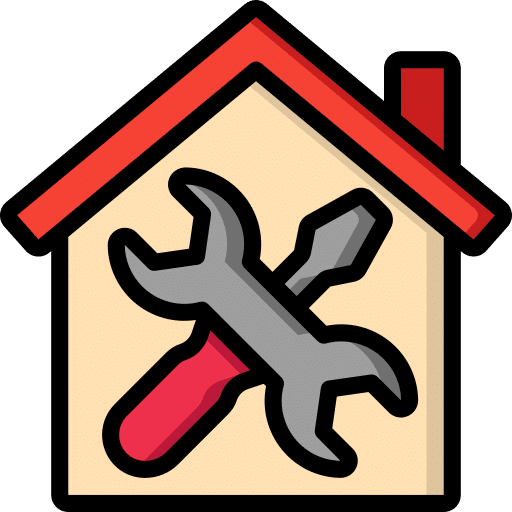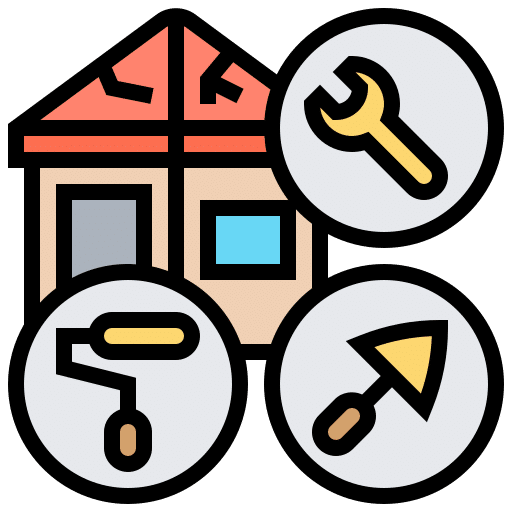The Ultimate Guide to Coach
HomeMakers
About The Author
Siddharth Rajsekar
Founder - Internet Lifestyle Hub
Siddharth Rajsekar aka Sidz is the founder of the Internet Lifestyle Hub, one of the world’s largest communities for coaches, trainers, teachers, and experts with over 20,000 members.
As an acclaimed lifestyle entrepreneur, Business World's 40 under 40 award winner, and international speaker, Siddharth has trained over 500,000 people in the last 10 years. Recognized as one of India’s leading and sought-after “info-marketing” specialists, Siddharth has worked closely with renowned International experts like Robert Kiyosaki, T Harv Eker, Tony Robbins, Brian Tracy, and Jack Canfield.
After running many multi-million-dollar online campaigns for companies and helping people make money online in the last 10 years, Siddharth has developed and perfected the Freedom Business Model. The Freedom Business Model focuses on helping people take their expertise online and building a super-profitable digital coaching business, without an office or employees.

His mission is to reform the education and employment system by building a new breed of Digital Leaders, based on the core principles of humanity and simplicity and by enhancing one’s social skills, happiness, and overall productivity.
He is the author of this book, “You Can Coach” which decodes all the steps for experts to successfully PLAN, LAUNCH, and GROW a digital coaching business to six figures a month. Wearing multiple hats, Siddharth is a husband of a loving wife, a father of 2 boys, a minimalist, futurist, spiritualist, a YouTuber who has published over 300 videos, as well as a podcast host!
1. Do You Have What It Takes To Be A Homemaker Coach?
A happy home is one that is filled with love, warmth, and positive energy. It is a place where family members feel safe, comfortable, and supported. While each home is unique and individual, there are some common factors that contribute to a happy home. A happy home is one that is built on a foundation of love, respect, communication, and positive energy. By creating a comfortable and cozy space, sharing experiences, and supporting each other through the ups and downs of life, family members can create a home that is a sanctuary of happiness and joy.
A homemaker is a person who manages a household, typically by taking care of cooking, cleaning, and other household chores. They may also be responsible for managing the family's finances, organizing family activities, and taking care of children or other family members.
The role of a homemaker is often undervalued and overlooked, but it is a vital and important one in society. A homemaker is responsible for creating a safe and comfortable home environment where family members can thrive and grow.
Homemakers come from all walks of life and backgrounds. They may be stay-at-home parents or work outside the home while still managing the household. They may be single or married, with or without children. Regardless of their individual circumstances, homemakers share a common goal of creating a loving and supportive home environment.
A homemaker's role is multifaceted, requiring a wide range of skills and responsibilities. Homemakers play a critical role in managing the household and creating a supportive and nurturing home environment for family members. They are responsible for a wide range of tasks and responsibilities, requiring a diverse set of skills and abilities. In spite of the demands of the role, homemakers are often unsung heroes, quietly working behind the scenes to ensure that their families are happy and healthy. There was a time when the person who looked after a home was called a housewife, or lady of the house, but now a more gender-neutral term is "homemaker.”
The clients of a homemaker coach can include:
Individuals who are new to homemaking:
A homemaker coach can help those who are new to homemaking by teaching them basic household management skills such as meal planning, grocery shopping, cleaning, organizing, and time management.
Busy professionals:
Busy professionals who don't have the time or energy to manage their homes efficiently can benefit from the services of a homemaker coach. The coach can help them streamline their household tasks and create systems that work for their busy schedules.
Stay-at-home parents:
Stay-at-home parents can also benefit from the services of a homemaker coach. The coach can help them manage their time more effectively, create a household routine, and find ways to make their daily tasks more efficient.
Empty nesters:
Empty nesters who are downsizing or transitioning to a new phase of life can benefit from the guidance of a homemaker coach. The coach can help them reorganize their homes, downsize their possessions, and create a new household routine that works for their current lifestyle.
People with health issues or disabilities:
People with health issues or disabilities may need extra support to manage their households. A homemaker coach can provide guidance on how to modify household tasks to make them more manageable, as well as provide emotional support and encouragement.
Individuals with mental health challenges:
Individuals with mental health challenges may find it difficult to manage their households. A homemaker coach can provide guidance on how to break down tasks into manageable steps, create a routine, and develop coping strategies to manage any challenges that may arise.
Families with children:
Families with children can benefit from the services of a homemaker coach by learning how to create routines that work for their family, teaching children household tasks, and finding ways to make the household more organized and efficient.
The condition of our home environments affects the way we feel and think, and the way we feel and think affects the condition of our homes. Homemaking is a profession, like any other, with its own set of knowledge, skills, and abilities that must be learned if the job is to be done well.
A homemaker’s job is complex and essential; it is worthy of great respect as it requires:
A great deal of thought
The ability to be self-managing and self-directing
Flexibility
Technical Skills
This is a profession, just like any other, with its own set of knowledge, skills, and abilities that must be learned if one wants to be successful. Homemakers wish to live happier lives in their homes through better management of their personal and household resources.
But not everyone is born with basic homemaking skills. Individuals want to learn how to eliminate clutter, “get organized," establish practical cleaning schedules, manage their food budgets wisely, and cook decent meals. A homemaker coach can help those who want to have less stress, make more money, and be more effective in their work as homemakers.
Why is it important to coach homemakers?
Homemaking can be done, and it can be done well. If it is seen as a profession, with tasks and skills that can be learned, homemaking can be a source of confidence and pride. A homemaker can have a significant impact on the happiness and well-being of their family members, and coaching can help them develop the skills and mindset needed to create a healthy and happy home environment.
If you wish to be a coach for homemakers, you need to be emotionally intelligent and have the ability to build strong relationships with your clients, providing them with the support, guidance, and encouragement they need to achieve their goals.
The first concept that homemakers must learn is that adopting a professional attitude toward homemaking will allow them to think of themselves like ambitious executives aggressively pursuing successful careers. This would include “arriving” to work on time, dressing in a way that is appropriate for the job, doing one’s work swiftly and with integrity, interacting with one’s peers when possible to share new or more successful methodologies, and engaging in continuing education or professional development regularly.
By viewing homemaking as a profession worthy of respect, applying best practices from the outside business world, and cultivating a professional mindset, homemakers can be more effective in their daily work. They will have less stress and better self-esteem, and a greater ability to create the types of home environments they desire.
Coaching homemakers requires a combination of personal and professional skills. To be an effective coach, it is important to have a combination of personal and professional skills.
A coach for homemakers should have several emotional qualities to be effective:
Empathy:
A coach should be able to understand and empathize with the challenges and emotions that homemakers face and provide a safe, non-judgmental space for them to discuss their concerns. Empathy is the ability to put yourself in another person's shoes and understand their feelings and perspectives. As a coach, it is important to be able to empathize with the homemaker and understand the challenges they face in managing a household and taking care of their family.
Coaching involves helping the homemaker identify their challenges and find solutions to overcome them. A coach needs to have strong problem-solving skills to help the homemaker break down complex problems into manageable parts and develop practical strategies to solve them.
Patience:
Homemakers may have a lot on their plate, so a coach should be patient and understanding when it comes to their progress and setbacks. Developing new habits and skills takes time, and a coach needs to be patient and persistent in helping the homemaker make progress toward their goals.
Compassion:
A coach should be able to show compassion and care for their clients, which can help build trust and rapport.
Encouragement:
A coach should be able to offer encouragement and support to their clients, especially during challenging times.
Adaptability:
Homemakers have unique needs and circumstances, so a coach should be able to adapt their coaching style to meet their clients' specific needs and preferences.
Positive attitude:
A coach should have a positive attitude and be able to help their clients stay motivated and focused on their goals.
Trustworthiness:
Homemakers may share personal information with their coach, so it's important that the coach is trustworthy and can maintain confidentiality.
Communication:
Effective communication is essential for any coach. The ability to listen actively, ask probing questions, and give feedback in a clear and concise manner is critical for building trust and creating a safe space for the homemaker to share their concerns and goals.
Organization:
Homemakers need to manage many tasks and responsibilities on a daily basis, and a coach needs to help them develop organizational skills to keep track of their schedules, prioritize tasks, and manage their time effectively.
Flexibility:
Every homemaker is unique and has different needs, goals, and challenges. A coach needs to be flexible and adaptable to adjust their style to meet the specific needs of the homemaker.
Emotional intelligence:
Emotional intelligence involves the ability to recognize and regulate your own emotions, as well as understand and respond to the emotions of others. A coach with high emotional intelligence can create a positive and supportive coaching relationship with the homemaker.
The mindset of a homemaker coach
By incorporating these elements into your coaching, you can help your clients gain a better understanding of homemaking and how it can benefit their lives.
Define your audience:
Determine who your target audience is and what they are looking to gain from this coaching. Understanding your audience will help you tailor your content to their needs.
Highlight the benefits:
Clearly outline the benefits, such as increased productivity, better time management, and improved organization. Use real-life examples and case studies to demonstrate how this coaching can help individuals achieve their goals.
Offer practical advice:
Provide practical tips and advice that clients can implement in their daily lives. This could include time-saving techniques, organizational strategies, and effective communication methods.
Be empathetic:
Recognize that homemaking can be a challenging and often overwhelming task, especially for those with other responsibilities such as work and childcare. Show empathy towards your clients and offer support and encouragement.
Include resources:
Provide additional resources they can use to further their knowledge and skills in homemaking. This could include books, websites, online courses, and podcasts.
Understand their needs and goals:
Before starting coaching, it is essential to understand the needs and goals of the homemaker. This involves listening to them and understanding their challenges, strengths, and areas for improvement. Once you understand their needs, you can work with them to set achievable goals that will help them improve their skills and achieve their objectives.
Develop a plan:
Once you understand the needs and goals of the homemaker, the next step is to develop a plan that outlines the steps that will be taken to achieve their goals. This plan should be realistic and achievable and should be broken down into smaller, more manageable steps. The plan should also be flexible, allowing for changes and adjustments as needed.
Provide guidance and support:
As a coach, your role is to provide guidance and support to the homemaker as they work towards their goals. This involves offering advice, answering questions, and providing feedback on their progress. It is important to be supportive and encouraging and to celebrate their successes along the way.
Build on their strengths:
Every homemaker has unique strengths and skills that can be built upon. As a coach, it is important to identify these strengths and use them to help the homemaker achieve their goals. This involves finding ways to apply their strengths to the tasks and challenges they face and using them as a foundation for further growth and development.
Address their weaknesses:
At the same time, it is important to identify and address areas where the homemaker needs to improve. This can involve providing training, resources, or other support to help them develop the skills and knowledge needed to succeed in these areas.
Encourage self-reflection:
Coaching is not just about providing guidance and support, but also about helping the homemaker to develop a self-reflective mindset. This involves encouraging them to reflect on their progress, identify areas for improvement, and take ownership of their own development. By encouraging self-reflection, you can help the homemaker to develop the skills and mindset needed to continue growing and improving over time.
Coaching homemakers can be a rewarding and impactful experience. By understanding their needs and goals, developing a plan, providing guidance and support, building on their strengths, addressing their weaknesses, and encouraging self-reflection, you can help them develop the skills and mindset needed to create a healthy and happy home environment.
Overall, a coach can be a valuable resource for homemakers, helping them achieve their goals, build skills, and improve their quality of life.
2. Creating A Curriculum
A homemaker coach can be a valuable partner in helping individuals and families manage their homes more effectively, reduce stress, and improve the quality of life at home.
A homemaker’s coaching curriculum should include the following topics:
Goal Setting and Time Management:
Helping homemakers set realistic goals and manage their time effectively to achieve those goals. Homemakers must be able to manage their time effectively to balance their many responsibilities. Homemakers often have a lot of responsibilities to juggle, so a coach can teach them strategies for managing their time more effectively, such as setting priorities, delegating tasks, and using tools like calendars and to-do lists.
“Time” management is really “choice” management. Everyone receives the same 24 hours in a day, but it is what you choose to do with your time that determines the level of your effectiveness and the degree of your family’s overall happiness.
● Map your current daily/weekly schedules and routines
●Compare how much time may be needed to manage your home with how much time you actually have available
● Take less time doing what you have to do, so you can have more time to do what you want to do.
Budgeting for maintenance and repairs:
The coach should teach homemakers about the importance of budgeting for home maintenance and repairs, and provide guidance on how to estimate the cost of repairs and set aside funds for these expenses. By teaching homemakers about home maintenance, a homemaker coach can help them prevent costly repairs and maintain a safe and comfortable living space for their family.
Financial Management:
Providing homemakers with tools and resources to manage their finances, including creating and sticking to a budget, saving money, and reducing debt. Managing household finances: A homemaker may be responsible for managing the family's finances, paying bills, and keeping track of expenses.
Mint – This tool integrates all your bank accounts into one place
Self-Care and Well-being:
Encouraging homemakers to take care of themselves and prioritize their own well-being, including physical, mental, and emotional health. Self-esteem—pride in a job well done—comes when homemakers:
● Are conscious of what it is that they are doing
● Are living and working with a clear goal in mind
● Can clearly measure their success.
A homemaker coach could tailor the curriculum to the specific needs and preferences of each individual client while ensuring that all of the essential topics are covered. The coach could also incorporate practical exercises, such as meal planning and cleaning challenges, to help clients apply what they've learned in their own homes.
Know your task, know your target, know your tools, and then get started, one small step at a time
Some of the basics that a homemaker coach should teach include:
Home organization:
A coach can help homemakers learn how to declutter their homes, develop systems for keeping their living spaces clean and tidy, and make the most of storage and organizational solutions.
Discuss the purpose of a kitchen and how to arrange kitchen contents effectively
Efficient strategies that show readers how they can maximize results while minimizing effort
Solid cleaning advice for every room in the house
Professional secrets that will revolutionize how to clean your house – faster, better, and cheaper
Cleaning strategies that work for you no matter how busy your lifestyle
Complete list of top-grade supplies and equipment; and when you need professional help – and how to get what you pay for
When teaching the basics of home cleaning, a homemaker coach should follow these steps:
Understand the needs and preferences of the homemaker. Before teaching any specific cleaning techniques, the coach should understand the needs and preferences of the homemaker. This may include factors such as the size and layout of the home, the number and ages of family members, and any pets or allergies
Identify the cleaning tasks and frequency:
The coach can then work with the homemaker to identify the cleaning tasks that need to be done on a regular basis, such as dusting, vacuuming, and bathroom cleaning, as well as the frequency of each task.
Teach cleaning techniques:
Once the cleaning tasks and frequency have been identified, the coach can teach the homemaker specific cleaning techniques for each task. This may include techniques for cleaning floors, windows, appliances, and furniture, as well as using cleaning products effectively and safely.
Provide guidance on cleaning products and tools:
The coach can help the homemaker choose the appropriate cleaning products and tools based on their cleaning needs and preferences. This may involve recommendations for natural or non-toxic cleaning products as well as suggestions for high-quality cleaning tools.
Teach time-saving strategies:
The coach can provide time-saving strategies to help the homemaker clean more efficiently, such as cleaning in a specific order, using a cleaning caddy, and involving other family members in the cleaning process.
Provide ongoing support and accountability:
The coach should provide ongoing support and accountability to help the homemaker establish a cleaning routine and maintain a clean and organized home. This may involve regular check-ins, providing tips and resources to help with cleaning and organization, and celebrating progress and success.
Meal planning and preparation:
A coach can help homemakers plan and prepare healthy, budget-friendly meals for their family, including shopping and meal prep strategies, recipes, and cooking techniques. A homemaker coach can teach several skills and strategies to help homemakers with meal preparation.
Some of the key areas that a homemaker coach might focus on include:
Menu planning:
A coach can teach homemakers how to plan healthy, balanced meals that meet the dietary needs and preferences of their families. This may include creating a weekly or monthly meal plan and shopping list to make grocery shopping and meal prep more efficient. This helps save time, energy, and money while also building food storage.
Recipe selection and adaptation:
A coach can help homemakers find and adapt recipes to meet their family's needs and preferences, including accommodating food allergies, dietary restrictions, and picky eaters.
Discuss the definition of a Two-Week/Three-Month pantry and how implementing this strategy can reduce stress today and potential stress in the future
Walk them through the steps to develop a Two-Week/Three-Month pantry for the family, complete with menus, recipes, inventory and pre-made shopping lists
Explain how to gradually obtain a Three-Month Pantry working within the current grocery budget
Food preparation techniques:
Cooking is an essential life skill that can be enjoyed by everyone. Whether you are a novice or an experienced home cook, there is always something new to learn in the kitchen. This is where a homemaker coach comes in - they can teach clients how to develop cooking techniques and skills, so that they can create delicious and nutritious meals for the family.
A coach can teach homemakers how to use basic cooking techniques, such as chopping, sautéing, and baking, to prepare healthy and delicious meals.
Here are some cooking techniques that a homemaker coach can teach:
Knife skills:
One of the most fundamental skills that a homemaker coach can teach is how to use a knife correctly. They can show you how to safely and efficiently chop vegetables, fruits, and meats. By mastering this skill, they can not only save time in the kitchen, but also create meals that look and taste great.
Cooking methods:
A homemaker coach can also teach the various cooking methods, such as grilling, sautéing, roasting, and baking. Each method has its own advantages and produces different results. By learning these techniques, homemakers can expand their repertoire of recipes and create more complex and flavorful meals.
Seasoning:
Seasoning is the key to making any dish taste great. A homemaker coach can teach how to use herbs, spices, and other flavorings to enhance the taste of food. They can demonstrate how to balance flavors and create delicious meals that everyone will love.
They can show you how to prepare meals in advance, so that they can be quickly assembled during the week. They can also teach you how to multitask in the kitchen, so that you can make the most of your time.
Time-saving tips:
A coach can provide homemakers with time-saving tips and strategies for meal preparation, such as batch cooking, using slow cookers or instant pots, and prepping ingredients in advance.
Food storage and preservation:
A coach can teach homemakers how to store and preserve food properly to minimize waste and save money. This may include tips on freezing, canning, and using leftovers creatively.
Budget-friendly meal planning:
A coach can help homemakers plan and prepare healthy, budget-friendly meals that stretch their grocery budget further, while still meeting their family's nutritional needs.
Overall, a homemaker coach can provide homemakers with the skills and knowledge they need to plan and prepare healthy, delicious, and budget-friendly meals for their families, while also managing their other household responsibilities.
Financial management:
A coach can teach homemakers how to create and stick to a budget, save money, and reduce debt. When teaching homemakers how to create and stick to a budget, save money, and reduce debt, a homemaker coach should follow these steps:
Assess the current financial situation:
The coach should begin by assessing the current financial situation of the homemaker and their family. This may include reviewing income, expenses, debt, and any existing budget.
Set financial goals:
Based on the financial assessment, the coach can help the homemaker set specific financial goals that they would like to achieve, such as paying off debt, saving for a specific expense, or building an emergency fund.
Create a budget:
The coach can work with the homemaker to create a realistic budget that will help them achieve their financial goals. This may involve categorizing expenses, such as housing, food, transportation, and entertainment, and setting limits or targets for each category.
Identify ways to save money:
The coach can help the homemaker identify areas where they can cut back on expenses and save money. This may include finding ways to reduce utility bills, meal planning to reduce food costs, and shopping for deals and discounts.
Some basic rules
Plan meals and make a grocery list:
Before heading to the grocery store, plan out the meals for the week and make a list of the ingredients you'll need. This will help you avoid buying unnecessary items and reduce food waste.
Buy in bulk:
Buying items in bulk can save you money in the long run. Look for bulk deals on items that you frequently use, like rice, beans, lentils and cooking oil.
Use coupons and shop sales:
Keep an eye out for coupons and sales on items you regularly use. You can also sign up for loyalty programs at your grocery store to receive discounts and special offers.
Cook at home:
Eating out can quickly add up, so cooking meals at home is a great way to save money. Look for recipes that use affordable ingredients and cook in bulk to have leftovers for future meals.
Repurpose leftovers:
Don't let leftovers go to waste! Repurpose them into new meals, like turning leftover chicken into a salad or using vegetable scraps to make stock.
Buy seasonal produce:
Choosing produce that is in season is often less expensive and more flavorful than out-of-season produce that has been shipped from far away.
Shop at farmer's markets:
Buying produce at farmer's markets can be more affordable than at grocery stores, and you'll be supporting local farmers in your community.
Make your own pantry staples:
Items like broth, salad dressings, and sauces can be made at home for a fraction of the cost of buying them at the store.
Use your freezer:
If you have extra food that you can't eat before it goes bad, freeze it for later use. This can help reduce food waste and save you money in the long run.
Develop strategies for reducing debt:
If the homemaker has debt, the coach can work with them to develop a debt reduction plan. This may involve prioritizing debt payments, negotiating with creditors, or exploring debt consolidation options.
Provide ongoing support and accountability:
Finally, the coach should provide ongoing support and accountability to help the homemaker stick to their budget, save money, and reduce debt. This may involve regular check-ins, providing tools and resources to help with budgeting and saving, and celebrating progress and successes.
By following these steps, a homemaker coach can help homemakers create a realistic budget, save money, and reduce debt, ultimately improving their financial situation and reducing stress and anxiety related to money.
Self-care:
Homemakers often put the needs of their family before their own, so a coach can help them prioritize self-care and develop strategies for managing stress, practicing mindfulness, and improving overall well-being.
Overall, a homemaker coach can provide homemakers with a range of skills and strategies that can help them manage their household responsibilities more effectively and improve their overall quality of life.
3. A Day In The Life Of A HomeMaker Coach
A homemaker coach, also known as a household management coach or a homemaking coach, provides guidance and support to individuals and families who are looking to improve their home management skills. A day in the life of a homemaker coach may vary depending on the coach's schedule and client needs.
A typical day for a homemaker coach may look like this:
Morning routine:
A homemaker coach may start their day with a morning routine, which could include meditation, exercise, or journaling to help them focus and prepare for the day ahead. This has a lot to do with your consciousness. You’ve got to protect it.
Client sessions:
The coach may have scheduled sessions with their clients, which could be conducted over the phone, via video conferencing, or in person. During these sessions, the coach would listen to their client's concerns, offer guidance and support, and provide accountability to help them stay on track toward achieving their goals.
Goal setting and planning:
Between client sessions, the coach may spend time reviewing client progress and setting goals and action plans for upcoming sessions. This may involve researching and developing resources, tools, or exercises to help their clients achieve their goals.
Marketing and business development:
A homemaker coach may also spend time on marketing and business development activities, such as networking with other professionals, creating content for their website or social media, or developing new programs or services to offer their clients.
Marketing and Business Development strategies:
A homemaker coach can use these methods to promote their services and attract clients:
Develop a website and social media presence: A homemaker coach should have a professional website that showcases their services, experience, and testimonials from satisfied clients. Social media platforms like Facebook, Instagram, and LinkedIn can also be effective for reaching potential clients and building a community around their coaching services.
Attend networking events: Attending local networking events can be a great way to meet potential clients and build relationships with other professionals in related fields. Examples of events to consider attending include local business meetups, community events, and industry conferences.
Offer free workshops and talks: A homemaker coach can offer free workshops and talks on topics related to their coaching services, which can help to build their reputation as an expert in the field and attract potential clients.
Partner with related businesses: A homemaker coach can partner with related businesses such as house cleaning services, meal delivery services, or home improvement contractors to cross-promote their services to each other's clients.
Offer referral bonuses: A homemaker coach can offer referral bonuses to existing clients who refer new clients to their coaching services. This can incentivize clients to spread the word about the coach and help to attract new business.
Collaborate with other coaches: A homemaker coach can collaborate with other coaches in related fields, such as financial coaches or life coaches, to offer joint coaching packages or refer clients to each other's services. By implementing these marketing and business development strategies, a homemaker coach can attract more clients and build a successful coaching business.
























